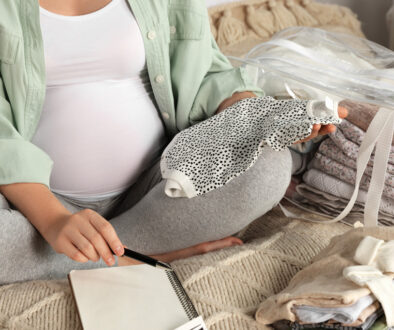What Causes Blood Pressure Problems During Pregnancy?
You know that your body is going through incredible changes during pregnancy. To accommodate the growing fetus, your circulatory system also makes adjustments to ensure your baby gets what is needed for optimum development. This can lead to changes in your blood pressure during pregnancy.
We’ll take a closer look at what you need to know about blood pressure during pregnancy.
What Causes Low Blood Pressure During Pregnancy?
When you’re pregnant, your hormones cause your blood vessels to dilate in order to expand your circulation to accommodate the baby. It may fall early on in your pregnancy but typically, your blood pressure is lowest around your second trimester.
What Are Signs of Low Blood Pressure?
For many people, low blood pressure is not a problem. However, during pregnancy, it’s important that we keep a close eye on it to ensure there are no issues or complications.
You should contact us immediately if you experience any of the following signs of low blood pressure:
- Lightheadedness
- Fainting, or the feeling that you’re going to faint
- Dizziness
- Vision problems
- Nausea
- Fatigue
What Causes High Blood Pressure During Pregnancy?
Some women have high blood pressure before they get pregnant, while others may not have a problem with it until after conception. Around 8 percent of women have some type of high blood pressure during their pregnancy.
High blood pressure during pregnancy is called gestational hypertension. This typically occurs after your 20th week of pregnancy, and it often goes away after childbirth. However, chronic hypertension is high blood pressure that started before the 20th week or even before you became pregnant.
There can be several causes of high blood pressure during pregnancy. We’ll look at a few.
You’re at greater risk of developing high blood pressure during pregnancy if:
- You’re overweight
- This is your first pregnancy
- You have a family history of high blood pressure
- You’re carrying more than one baby (multiples)
- You’re over age 35
- You have diabetes
- You were diagnosed with an autoimmune disease
Risks of High Blood Pressure During Pregnancy
In certain cases, chronic or new onset blood pressure during pregnancy can lead to preeclampsia, which typically occurs in the last trimester. Preeclampsia can be a serious condition, causing kidney or liver damage.
What Happens If You Have Preeclampsia?
Preeclampsia can cause symptoms such as:
- Abdominal pain
- Nausea
- Vomiting
- Kidney problems
- Vision changes, including temporary blindness
- Decreased urination
- Liver damage
- Shortness of breath
- Fluid in your lungs
Other Risks Associated With High Blood Pressure
High blood pressure can also cause other issues such as:
- Limited blood flow to the placenta, which means your baby may not get the nutrients needed
- Placental abruption, where the placenta separates from the uterine wall.
- Decreased growth of your baby.
- Injuries to major organs such as your lungs, liver and heart
- Premature delivery
If you have preeclampsia, we’ll work closely with you to create a treatment plan. Treatments may include:
- Medication designed to lower your blood pressure
- Corticosteroids to help your baby’s lungs mature
- Anticonvulsant medications to decrease the risk of seizure or stroke
What Is the Normal Blood Pressure Range While Pregnant?
A normal blood pressure reading is less than 140/90(stated as 140 over 90)
The first number is called the systolic reading, and it is the measurement of the pressure against your blood vessels when the heart beats.
The bottom number is called the diastolic number, and it indicates how much pressure is present when your heart is at rest.
You can find more valuable information about blood pressure and assess your risk from the American Heart Association.
At Associates in Women’s Healthcare, We Will Monitor You Throughout Your Pregnancy
The best way to prevent any complications from high or low blood pressure during pregnancy is to work together as members of your health care team and partners in your care. We care about your overall well-being, and we encourage you to have regular checkups so we can monitor you carefully to ensure the healthiest start possible for both mother and baby. We also recommend purchasing an automatic blood pressure cuff for home so that you can monitor your blood pressure between visits or for telehealth visits.
We are women who have cared for generations of women throughout the Triangle and Raleigh areas. See why we have been the trusted provider of choice for decades. Contact us for an appointment today.





